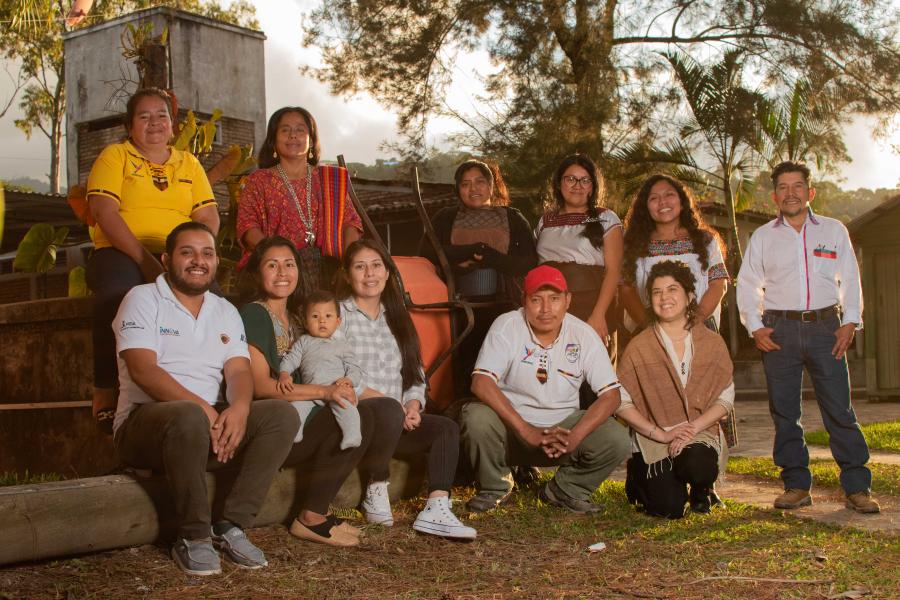
April 17 - 28, 2023
Agenda Item 4: “Discussion on the six mandated areas of the Permanent Forum (economic and social development, culture, environment, education, health, and human rights), with reference to the United Nations Declaration on the Rights of Indigenous Peoples and the 2030 Agenda for Sustainable Development”
Joint intervention submitted by First Peoples Worldwide on behalf of First Peoples Worldwide, Cultural Survival, Batani Foundation, Earthworks, and Society for Threatened Peoples, together as the Securing Indigenous Peoples’ Rights in the Green Economy Coalition
Submitted by Briana Edmo.
Thank you Chair, members of the Permanent Forum, delegates, Indigenous relatives.
I am Briana Nezbah Edmo, born of the Navajo people, Todiko’zhi and Nakai Dine, and born for the Blackfeet and Shoshone-Bannock people. Today I am here representing First Peoples Worldwide. I am honored to make a joint intervention on behalf of the Securing Indigenous Peoples’ Rights in the Green Economy Coalition and in solidarity with my colleague Lesley Muñoz of Chile, from the Colla Peoples, who is on the Steering Committee. Limiting states’ carbon emissions brings growing dependence on battery technology, increasing the demand for transition minerals such as nickel, lithium, zinc, and copper. In fact, if electric vehicles replaced all currently existing vehicles, mineral requirements for this technology would quadruple by 2040.
Fifty-four percent of the five thousand ninety-seven transition mineral projects worldwide are located on or near Indigenous territories. The high demand for these minerals has resulted in violations of Indigenous Peoples’ collective rights as stated in the United Nations Declaration on the Rights of Indigenous Peoples (UNDRIP), specifically Indigenous peoples’ rights to health, culture, and territories. Without ensuring Indigenous Peoples’ self-determination and Free, Prior, and Informed Consent right to say no throughout project life cycles, mining for transition minerals perpetuates the same environmental harms and rights violations as fossil fuel development.
Last year, the Forum recommended that Member States take urgent measures to guarantee Indigenous Peoples’ participation in the design and implementation of national clean energy transition plans, and that they also take remedial action where projects have begun without Indigenous participation. Indigenous Peoples’ rights to full participation and Free, Prior and Informed Consent throughout the planning and implementation process in all projects that affect their lands, waters, and resources is critical.
To respect the rights of Indigenous Peoples as stated in UNDRIP and collectively work towards meeting the 2030 Agenda for Sustainable Development, we ask the Forum to recommend that States:
- Halt the accelerating violations of Indigenous Peoples' rights, fueled by the green economy’s demand for transition mineral extraction, by providing the resources necessary to develop and implement Indigenous Peoples’ own Free, Prior and Informed Consent protocols.
- Conduct a Study on the human health effects of transition mineral extraction occurring on Indigenous Peoples’ traditional lands and territories.
- Strengthen, expand, and mainstream mechanisms for reporting and addressing violations of Indigenous Peoples’ individual and collective rights, including those of Indigenous defenders.
Indigenous Peoples steward lands containing 80 percent of the world’s remaining biodiversity and sequestering 300,000 million metric tons of carbon. Securing Indigenous Peoples’ rights to their lands, waters, and resources is essential for their continued significant role in transforming our world by 2030. Continued progress towards achieving our collective goals relies on Indigenous Peoples’ rights to self-govern, to land tenure, and to practice the traditional ecological knowledge with which they have tended their lands since time immemorial.


